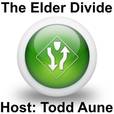
Summary: Internet Basics part 3 Search and how to use it. Tricks and Tips. With <a href="https://en.wikipedia.org/wiki/World_Wide_Web" target="_blank" rel="nofollow">(www)world wide web</a> and a search engine like google you can access the world of billions of websites with all the information you want just a few clicks away. <a href="https://en.wikipedia.org/wiki/Web_search_engine" target="_blank" rel="nofollow">Search Engines</a> are special websites that you type-in keywords and get matching results. Results can be web pages, text, images, documents, databases and other files. These search engines use <a href="https://en.wikipedia.org/wiki/Algorithm" target="_blank" rel="nofollow">algorithms</a> then a <a href="https://en.wikipedia.org/wiki/Web_crawler" target="_blank" rel="nofollow">web crawler</a> or bot on the Internet for results daily, keeping there listings up to date. Sometimes a new website may appear within hours. Essentially a Search Engine indexes its results in there own database or directory you see with your search. These results can be in the form of a <a href="https://en.wikipedia.org/wiki/Hyperlink" target="_blank" rel="nofollow">hyperlink</a> to your results from search keywords. Search results can also come from websites using <a href="https://en.wikipedia.org/wiki/Search_engine_optimization" target="_blank" rel="nofollow">(SEO)search engine optimization</a> effecting how high a ranking a website results are listed. I will show you how to get the results you want. Sometimes the way you put in keywords is not enough to narrow the results. You may have to type it like a question or sentence. Also which results to use as far as paid or ranking on the results page. Sometimes the first, second or third result might not be what you want. Website owners using SEO, <a href="https://en.wikipedia.org/wiki/AdWords" target="_blank" rel="nofollow">AdWords</a> a form of online advertising or pay per click that can affect their ranking. Not necessarily giving you what you want for results. Also you might have to go to more than the first page of results to get to what you want. Another thing to consider is safety of sites listed on the Internet. Using a addon like WOT that I mentioned in the previous tutorial can help you decide if the results you get from a search is safe to click on and go to. This combined with a good anti-virus, anti-phishing, anti-malware software can help protect you from malicious sites. Search Engines try to delete bad sites from their databases but this is an ongoing process an some bad links slip through. Leaving protection up to you. The main way to search is to goto <a href="https://www.google.com" target="_blank" rel="nofollow">Google</a>, <a href="http://www.bing.com" target="_blank" rel="nofollow">Bing</a> or <a href="https://www.yahoo.com" target="_blank" rel="nofollow">Yahoo</a>. These each have their own things you may like or dislike similar to different Internet Browsers. These are the main search engines along with others you can use. I mentioned DuckDuckGo and StartPage in the previous tutorial that hide your search results from being tracked. These like StartPage just uses result from Google but filters them through their site instead of using Google itself. This can be kind of handy if you want fresh results on a search and not targeted ones from your previous searches. Like everything else these days, advertisers try to target what pages you go too. You may also have a separate search window on your browser beside the address bar that uses your default search engine you configured in settings. Most current versions of browsers have dropped this and just use the address bar. Just click on either the address bar, search window or search page window then type your keywords. You can either enter a word, phrase, question or sentence here. Most search engines may also offer you assistance in these search keywords or a correction too your spelling of these keywords.
